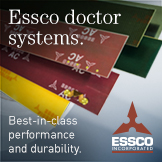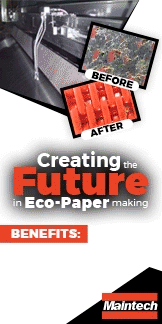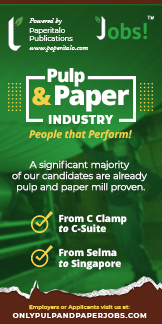Stora Enso's investment of EUR 12 million in a biocomposite plant is part of the company's ongoing process of becoming a renewable materials company. It shows that Stora Enso is a leader in the bioeconomy, with the ability to provide innovative, more sustainable alternatives to plastic. The company's biocomposites, DuraSense™ by Stora Enso, make it possible to reduce the consumption of plastic by up to 60% and replace it with renewable wood fibre.
Uses for biocomposites include everything from consumer goods to industrial applications, such as furniture, hand tools, automotive parts, toys and kitchen utensils. The combination of natural wood fibre, polymers and additives offer the mouldability of plastic with the sustainability and workability of wood.
"Biocomposites are another step towards replacing fossil-based materials. There is great potential for these renewable materials, so we are delighted to be opening Europe's largest wood fibre-based biocomposite plant today," says Karl-Henrik Sundström, CEO of Stora Enso.
About Stora Enso's biocomposite plant at Hylte Mill
- Investment: EUR 12 million
- Production volume: 15 000 tonnes/year, making it the largest wood fibre-based biocomposite plant in Europe
- Number of employees: 20 - recruitment is under way to further strengthen the sales team
Part of the bioeconomy, Stora Enso is a leading provider of renewable solutions in packaging, biomaterials, wooden constructions and paper globally. We believe that everything that is made from fossil-based materials today can be made from a tree tomorrow. Stora Enso has some 26 000 employees in over 30 countries. Our sales in 2017 were EUR 10 billion. Stora Enso shares are listed on Nasdaq Helsinki (STEAV, STERV) and Nasdaq Stockholm (STE A, STE R). In addition, the shares are traded in the USA as ADRs (SEOAY).


















